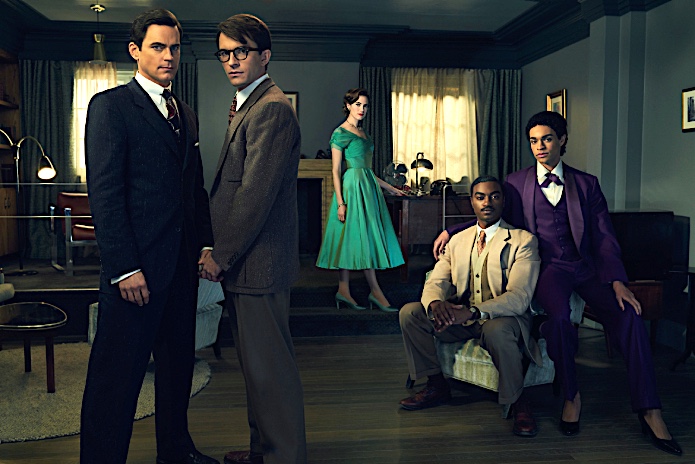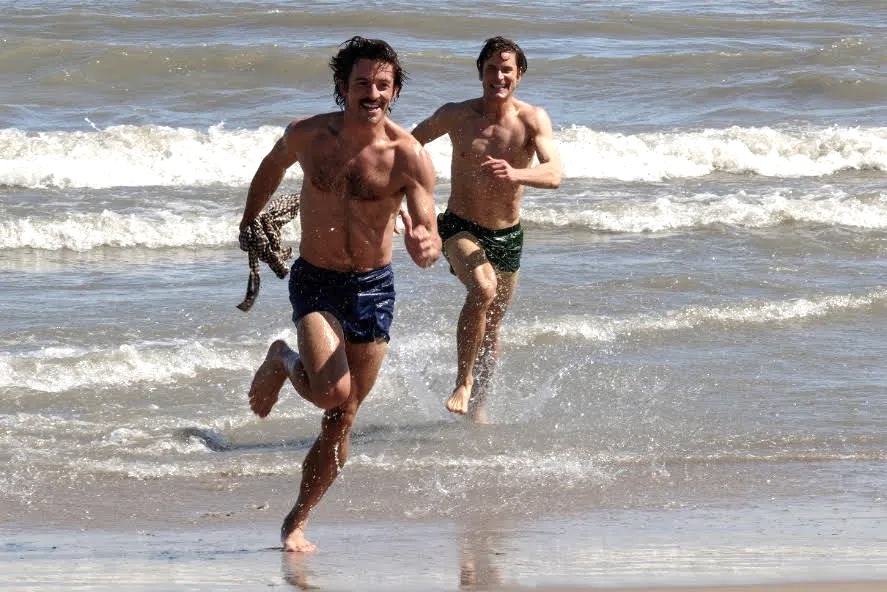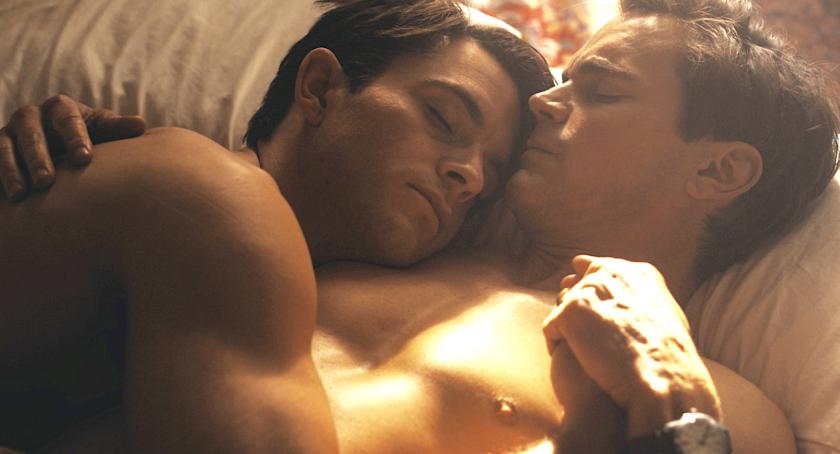Derived from the similarly-titled novel by Thomas Mallon and directed by Ron Nyswaner, Fellow Travellers tracks the course of its protagonists through several decades of 20th Century American history. It’s also an account of changing attitudes to homosexuality, and how gay culture emerged from the shadows and went mainstream.
Spanning the era from the Joseph McCarthy witch-hunts of the early 1950s to the Aids crisis of the Eighties, the story revolves around the entwined fates of Hawkins Fuller (Matt Bomer) and Tim Laughlin (Jonathan Bailey, familiar from Bridgerton), who meet when both are working at the State Department in Washington. Laughlin, geekily bespectacled, is doing menial grunt-work at the lower end of the food chain when he catches the eye of Fuller, whose sleek good looks and aura of ineffable self-confidence have made him a player to be reckoned with in the corridors of power.
Laughlin’s staunch religious faith has meant he’s had to hide his inner feelings, but Fuller can read his mind. What starts out as a rampant sexual attraction will blossom into a lifelong love affair, replete with challengingly intense sex scenes.“You can’t tell the queer love story and not show how the sex is so intrinsic,” Bailey commented in an interview with Out magazine.
 But Fuller also has ulterior movies. He wants to plant Laughlin as a spy in the McCarthy camp, where efforts to root out Communists and all manner of undesirables are reaching terrifying heights of vengeful hysteria. This was a time, after all, when the FBI ran a Sex Deviants Investigations Unit and the cops in Washington had a Sex Perversion Elimination Programme. When Fuller and Laughlin meet on a park bench, there’s a guy under a tree in a trench coat maintaining a not-very-discreet surveillance.
But Fuller also has ulterior movies. He wants to plant Laughlin as a spy in the McCarthy camp, where efforts to root out Communists and all manner of undesirables are reaching terrifying heights of vengeful hysteria. This was a time, after all, when the FBI ran a Sex Deviants Investigations Unit and the cops in Washington had a Sex Perversion Elimination Programme. When Fuller and Laughlin meet on a park bench, there’s a guy under a tree in a trench coat maintaining a not-very-discreet surveillance.
McCarthy is played by Chris Bauer as a bull-necked blowhard who has somehow been empowered to indulge his personal psychoses on the widest possible stage, abetted by his loathsome henchmen David Schine (Matt Visser) and Roy Cohn (Will Brill). As the story unfolds, their own derangement will be the cause of their destruction, but not before they’ve ruined untold lives and careers. Fuller himself is forced to undergo a polygraph test, since his status as a single man has prompted suspicions that he may be homosexual.
Fear stalks the sidewalks and subways, with friends and colleagues frequently bullied into betraying one another under pressure from the morality-gestapo. The way the gay population is forced to hide under the radar is an echo of the wider paranoia and subterfuge of the Cold War. In 1953, Julius and Ethel Rosenberg were executed for conspiracy to commit espionage, which prompts McCarthy to start an investigation of the Forth Monmouth radar laboratories where the Rosenbergs were based. The USA seems to be morphing hideously into all the things it was supposed to hate.
But meanwhile, the narrative jumps forward and backwards in time, taking us perhaps to some Seventies disco inferno or the let-it-all-hang-out gay bars of 1980s San Francisco, just as the Aids terror is starting to take hold. These temporal leaps become a little confusing, since Fuller in particular barely seems to age despite having leapfrogged a couple of decades (if you look closely, you might just discern a hint of grey around the temples).
 Adding to the complexities of leading a double life in a very uptight America, race features prominently. We see this chiefly via the story of black journalist Marcus Hooks (Jelani Alladin), whose reporting skills earn him promotion to a major daily newspaper, where he’s stunned to learn that he won’t be allowed to use the same washrooms as the white employees. Marcus’s adventures in the sexually fluid demi-monde make 1950s Washington look like something out of Boardwalk Empire.
Adding to the complexities of leading a double life in a very uptight America, race features prominently. We see this chiefly via the story of black journalist Marcus Hooks (Jelani Alladin), whose reporting skills earn him promotion to a major daily newspaper, where he’s stunned to learn that he won’t be allowed to use the same washrooms as the white employees. Marcus’s adventures in the sexually fluid demi-monde make 1950s Washington look like something out of Boardwalk Empire.
It’s an ambitious project and its themes strike some uncomfortable chords in our current era of creeping groupthink, though the impact is softened by the production’s too-clean, almost daytime-soapish design. Even ragged derelicts and Aids sufferers just look a bit peaky, rather than stricken characters in extremis. And the countless sex scenes, featuring the heroically-chiselled, artfully lit bodies of the protagonists, verge on the narcissistic.















Add comment